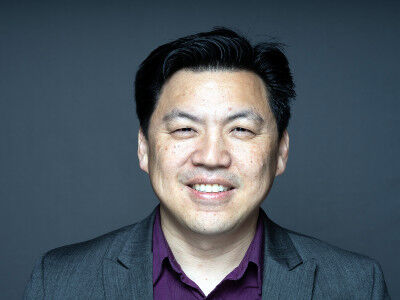UN chief warns world leaders of 'an age of reckless disruption and relentless human suffering'
News > International News

Audio By Carbonatix
9:08 PM on Monday, September 22
By EDITH M. LEDERER, JENNIFER PELTZ and FARNOUSH AMIRI
UNITED NATIONS (AP) — With global peace and progress under siege, the United Nations chief challenged world leaders Tuesday to choose a future where the rule of law triumphs over raw power and where nations come together rather than scramble for self-interests.
Secretary-General Antonio Guterres said the U.N.’s founders faced the same questions 80 years ago, but he told today’s world leaders at the opening of their annual gathering at the General Assembly that the choice of peace or war, law or lawlessness, cooperation or conflict, is “more urgent, more intertwined, more unforgiving.”
“We have entered in an age of reckless disruption and relentless human suffering,” he said in his annual “State of the World” speech. “The pillars of peace and progress are buckling under the weight of impunity, inequality and indifference.”
But despite all the internal and external challenges facing the U.N., he and General Assembly President Annalena Baerbock pleaded with its members not to give up. “If we stop doing the right things, evil will prevail,” Baerbock said in her opening remarks.
Looking broadly at the changing world, Guterres said it is becoming increasingly multipolar – certainly a nod to rising economic powers China and India but a slap to the U.S. insistence on superpower status. The U.N. chief said a world of many powers can be more diverse and dynamic but warned that without international cooperation and effective global institutions there can be “chaos.”
President Donald Trump insisted in a nearly hour-long speech that the United States has the strongest borders, military, friendships “and the strongest spirit of any nation on the face of the earth.” And he boasted, “This is indeed the golden age of America.”
As for the United Nations, he told the packed assembly chamber that the 193-member world body failed to help him end and alleviate conflicts which he said many believe merit the Nobel Peace Prize.
“All they seem to do is write a really strongly worded letter,” and not follow up, he said as he portrayed the U.N. as an ineffectual institution, from its policies to even its escalators. One of them had stopped unexpectedly as he and first lady Melania Trump were riding it toward the Assembly hall, and his teleprompter also wasn’t working.
A U.N. official said the United Nations understands that someone from the president’s party who ran ahead of him inadvertently triggered the stop mechanism on the escalator. The official, speaking on condition of anonymity because of the sensitivity of the issue, said the White House was operating the teleprompter for the president.
Trump reiterated that the U.N. has “tremendous, tremendous potential” but now delivers “empty words – and empty words don’t solve war.”
But his tone shifted at a meeting with Guterres soon after. “Our country is behind the United Nations 100%,” Trump told the U.N. chief. “I may disagree with it sometimes, but I am so behind it because the potential for peace at this institution is great.”
Guterres told the General Assembly that the first obligation of world leaders is to choose peace, and without naming any countries, he urged all parties -- including those in the Assembly chamber – to stop supporting Sudan’s warring parties.
He also didn’t name Israel but used his strongest words against its actions in Gaza, saying the scale of death and destruction are the worst in his nearly nine years as secretary-general, and that “nothing can justify the collective punishment of the Palestinian people.”
While Guterres has repeatedly said only a court can determine whether Israel has committed genocide in Gaza, he referred to the case South Africa brought to the U.N.’s highest court under the genocide convention by name – and stressed its legally binding provisional measures, first and foremost to protect Palestinian civilians.
Since the International Court of Justice issued that ruling in January 2024, Guterres said, killings have intensified, and famine has been declared in parts of Gaza. He said the court’s measures “must be implemented – fully and immediately.”
The U.N. also is facing financial cuts as the U.S. and some other nations pulled back funding or have yet to pay their dues. Guterres said aid cuts are “wreaking havoc,” calling them “a death sentence for many.”
Israeli-Palestinian conflict takes center stage
With global support for a Palestinian state growing, Israel’s devastating war in Gaza is taking center stage. But humanity’s myriad conflicts, rising poverty and heating planet will also be in the spotlight.
Turkey’s President Recep Tayyip Erdoğan began his speech voicing regret at the absence of Palestinian President Mahmoud Abbas, who was denied a visa by the United States.
He said he was standing at the assembly podium “for our Palestinian brothers and sisters whose voices are being silenced” while recognition of the state of Palestine is increasing is increasing. He thanked all countries that have done so and called on those that haven’t to do so “as soon as possible.”
Indonesia’s President Prabowo Subianto also gave strong support to the Palestinians and warned the assembly that “Human folly, fueled by fear, racism, hatred, oppression and apartheid threatens our common future.”
“Every day we witness suffering, genocide and a blatant disregard for international law and human decency,” the head of the world’s most populous Muslim nation said. “In the face of these challenges, we must not give up. … We must draw closer, not drift further apart.”
The General Assembly ’s big week of meetings began Monday with events including a conference on the Israeli-Palestinian conflict.
Tuesday's speakers also include Brazilian President Luiz Inacio Lula da Silva, Jordan’s King Abdullah II, French President Emmanuel Macron, South Korea’s President Lee Jae Myung and South African President Cyril Ramaphosa.
Da Silva — speaking first, under a longtime tradition dating to when Brazil was the only nation that volunteered to lead off — worried aloud that the U.N.’s authority was waning.
“We are witnessing the consolidation of an international order blocked by repeated concessions to power play,” he said.
Geopolitical problems keep getting more complex
While the debate’s theme is “Better Together,” observers can expect a rundown of ways in which the world is falling apart.
Gaza already has seized attention at the General Assembly. Monday’s conference, co-chaired by France and Saudi Arabia, focused on garnering support for the longstanding idea of a two-state solution to the Israeli-Palestinian conflict.
Almost all U.N. member nations have signed up to take their turn during the Assembly’s six-day-long speech-fest. The speakers’ list so far includes 89 heads of state, 43 heads of government, 10 vice presidents or deputy prime ministers, and 45 foreign ministers and other ministerial-level officials.














